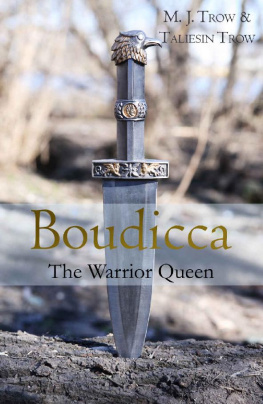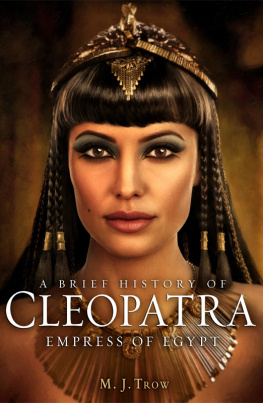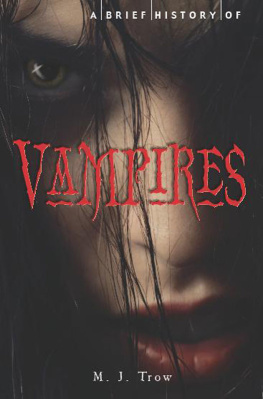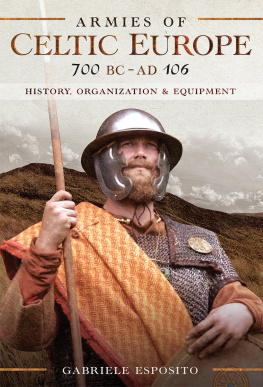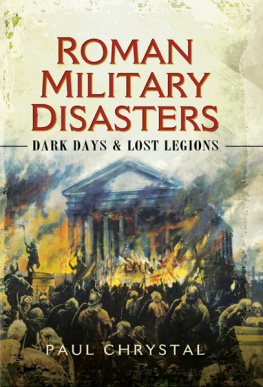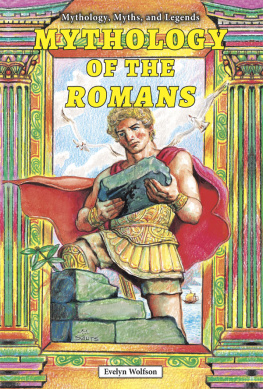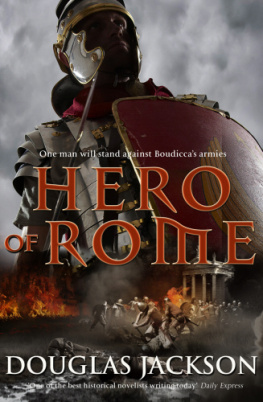Boudicca
The Warrior Queen
M. J. Trow &
Taliesin Trow
All Rights Reserved
Copyright M. J. Trow 2003, 2015
First published 2003 by Sutton Publishing Ltd
This edition published in 2015 by:
Thistle Publishing
36 Great Smith Street
London
SW1P 3BU
www.thistlepublishing.co.uk
This book is dedicated to
Carol of the Corieltavi,
with love and gratitude
ACKNOWLEDGEMENTS
Many thanks to everyone who has helped in the production of this book: to Andrew Lownie, friend and agent; to David Haviland of Thistle; to Philip Crummy of the Colchester Archaeological Trust; to David Thorold of Verulamium Museum; to Dick Barton of Colchester Museum; to Ann Reed for preparing for digitising; and most of all, as always, to Carol Trow who typed the manuscript, took the photographs, dotted all the is and crossed all the ts.

CONTENTS
CHAPTER ONE
MARTIA VICTRIX
What chariots, what horses
Against us shall bide,
While Stars in their courses
Do fight on our side?
An Astrologers Song from
Rewards and Fairies, Rudyard Kipling
Boudicca of the red hair stood on her chariot platform, her daughters by her side. She noticed how still they were and pale. All around them the warriors chanted and whooped in the summer sun; tall, fierce men with their lime-streaked hair and their blue painted bodies. The women trilled behind them from their positions on the wagons and the children scampered and played. Boys and girls no higher than a Celtic sword acted out their games of war, rolling and laughing under the wagon wheels, sliding on the dry grass of summer.
Still her girls were silent, their eyes at once hard and vacant. They had not been the same since that night, the night the Procurators men came. She could still smell the sour, watered wine on their breath and the stink of olives. They had laughed at her when she had screamed at them. Even when she knew what they were going to do and had slashed the cheek of one of them with her dagger, they still laughed. One of them had slapped her backwards so that she sprawled on the earth floor. Two more had grabbed her arms, twisting the knife from her grip. A third had ripped her tunic, taunting her in the guttering firelight, fondling her breasts for a moment before throwing her forward to be hauled upright onto her knees. Her arms were wrenched outwards, her long unbraided hair thrown over her face so that her back was bare. She could hear her girls crying, screaming as the caligae dragged them away. She was crying now, not for herself, but for them and she did not hear the soft thud as the sticks drove home, biting through her flesh and spraying the ground around her with her blood. All she could hear was her daughters screams coming from the hut. All she could imagine was their little naked bodies side by side, jerked up and backwards by the caligaes thrusts. She heard the men laughing as they grunted, egging each other on as the rods rained down on her spine. Each time she twisted to release her wrists, they drove their boots into her ribs and spat all over her long tresses, wet with her sweat and blood.
She did not know how long it lasted, the scourging of a queen and the raping of princesses. All she knew was that she had to move, to force her tortured body off the bloody ground and find her girls. She could barely stand and every breath was agony. Before her in the darkness the huts stood silent, the royal palace bereft of her people. Only a flaming torch guttered. Only a stray dog whined. The caligae had gone, their broken rods lying bloody near the strewn dresses of the girls.
The little ones huddled in the darkest corner, their red hair matted across their faces, streaked with tears. They shivered in their nakedness, infants on the verge of womanhood, hugging each other in their desolation and their fear. She pulled her dress around her so that they shouldnt see the bruising and the blood and she wrapped them in her arms, all three of them sobbing in the watches of the night. There were no words, for who could find them? No reasons, for who had them? Only a mother, hushing her raped babies and kissing their tears.
She looked at them now, on her chariot on that broad, sunlit field. It had been how long? Only since Beltane when the caligae had come with their incomprehensible tongue and their leering. Boudicca had heard those accents many times since and knew that when she had, they had always been screaming for mercy. She could not speak their language, but she understood every word - at Camulodunum, where the veterans had gone down before her warriors swords; at Londinium where their harlots breasts had been hacked off; at Verlamion where heads had bounced through the dripping marshes. And over all the screaming, the roar of fire and the roar of her thousands.
Boudicca looked beyond her spearheads to the hills and the dark mass of trees. This would be it, the final test. There, drawn up in a glittering mass on the edge of the sacred oaks, was the army of the legate, Gaius Suetonius Paulinus.
The legate shielded his eyes from the fierceness of the noonday sun. In the flood-plain of the river below him, the army of the Iceni was huge. What was it four, five times his own? Since Minervas month this army had been at his back, chasing him northwards. Back home, the farmers would have been pruning the vines and sowing the three-month wheat. Through all the weeks that followed, when the weak British sun was in the sign of Aries and his people sacrificed to Sarquis, that army had haunted him. They had attacked the veterans colony at Colonia Claudia, burning to the ground the great temple of the deified Claudius, slaughtering in their frenzy all that crossed their path. While he and his legions had been tramping through the mountains of the Ordovices, following the gold road to the west, the Horse People had struck south, looting and pillaging as they went. Under the protection of Apollo though he was, Cerialis and IX Hispana had been cut to pieces. At home the sheep were shorn, the wool was washed and sacrifices made to Mercury and to Flora. Cerialis had ridden north, lucky to have a command, lucky to be alive.
While the farmers at home mowed the hay and sacrificed to Hercules and Fors Fortuna, she of the red hair had taken Londinium, burning its shops and its houses, impaling and disembowelling the citizens that he, Paulinus, had had to leave behind. Even before hed left Mona, with its terrifying women and its chanting Druids, he knew that the Horse People and their terrifying queen were on the march. With a tiny cohort of cavalry with him, what could the legate do but ride north to meet the rest of his army and choose his ground? Under Jupiter in the sign of Cancer, when barley and honey were harvested and feasts held to honour Apollo and Neptune, the Iceni had marched on Verulamium, burning its streets, crucifying its people. And they werent even Romans.
So here he was, squinting into the sun under the scorching brim of his helmet, sitting his mare in the centre of his legions. The month was under the protection of Ceres and in the fields beyond the river, he could see the corn unharvested, flattened by the great army that shifted and writhed below him like some terrifying monster. At home, he knew, there would be sacrifices to Diana and, with a sudden realization that wrenched his heart, Hope and Safety. The feast of Volcanalia.
Boudicca knew where the legate was. She knew it by the plain scarlet flag in the centre of his ranks. His troops were spread out in a long solid line against the screen of trees. In the centre were the legions, hard men under their iron helmets, their javelins pointing skywards, their shields scarlet and gold with their wings and lightning flashes. She could hear the barked orders from the centurions standing ahead of their cohort lines. They were wearing full battle gear as if in honour of the day, silver
Next page
